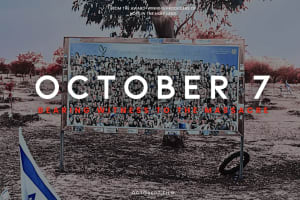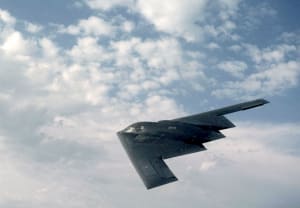Prominent Washington Post journalist says US, Israel face urgent decisions to 'exploit Iran’s weakness'

A prominent Washington Post journalist argued in an op-ed on Saturday that Israel and the United States face critical decisions as Iran becomes increasingly vulnerable due to the significant weakening of its Middle Eastern proxies, including Hamas, Hezbollah, and the former Syrian Assad regime.
David Ignatius, associate editor and columnist for the Post, wrote, “Iran appears to be at the most precarious moment in its modern history. Its proxy armies have been crushed in Gaza, Lebanon and Syria. And it appears to be nearly naked to attack after a wave of pinpoint Israeli airstrikes on its air defense system in October.”
Ignatius further argued that Israel’s Oct. 26 strike on Iran this year, dubbed “Days of Repentance,” "was calculated to leave Iran unprotected against a future attack".
"An astonishing wave of 120 jets took part in the raid, an Israeli military source said. The Israeli planes targeted air defense radars and antiaircraft batteries protecting Tehran as well as key factories producing fuel for Iranian ballistic missiles. The attack was in retaliation for Iran’s Oct. 1 bombardment of Israel with about 200 ballistic missiles — but the planning began many months before,” Ignatius wrote.
Ignatius recently met with former Israeli Defense Minister Yoav Gallant in Washington and revealed that Gallant believes the unprecedented October strike on Iran created “a window to act against Iran,” as the regime is becoming dangerously close to developing nuclear weapons.
“Israel appears to have created a corridor into Iran, providing a clear path for its aircraft to strike Tehran. This is a new level of operational freedom, allowing Israel to attack targets in Iran nearly as easily as it did in Gaza and Lebanon,” Ignatius assessed.
Ignatius expressed uncertainty about how Washington might leverage Tehran’s current vulnerability.
“U.S. decisions about how to exploit Iran’s weakness – whether by negotiating a binding nuclear agreement or, failing that, taking decisive military action – will fall to President-elect Donald Trump,” he wrote.
It is currently unclear how President-elect Donald Trump and his incoming administration will handle the Iranian problem. During his first presidential term, Trump embraced policies that minimized protracted military conflicts while at the same time imposing strong diplomatic and financial pressure on the regime.
Trump’s designated National Security Advisor Mike Waltz recently vowed that the new administration would return to the maximum pressure campaign against Iran that it had employed during the first Trump administration.
“You’re going to see a huge shift on Iran,” Waltz told Fox News.
“We have to constrain their cash. We have to constrain their oil. We have to go back to maximum pressure, number one, which was working under the first Trump administration,” he added.
Ignatius questions whether maximum pressure alone will be effective as Tehran approaches the brink of developing nuclear weapons.
Trump has expressed concerns that Tehran could potentially go nuclear on his watch, therefore, his transition team is currently examining the option of preventive military strikes on Iran’s nuclear facilities as Plan B, The Wall Street Journal reported on Thursday.

The All Israel News Staff is a team of journalists in Israel.
You might also like to read this:
















